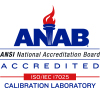 Posted on
Posted on 
In the life sciences industry, data loggers are vital tools for monitoring and recording environmental conditions, ensuring the safety and effectiveness of pharmaceuticals, medical devices, and other products. To meet regulatory requirements and maintain data reliability, validation protocols for data loggers are crucial.
Validation is essential for the following reasons:
Regulatory Compliance: Regulatory bodies like the FDA and EMA mandate data logger validation to guarantee product safety and efficacy.
Data Integrity: Validation ensures that data loggers accurately capture and record critical environmental parameters without errors or omissions.
Product Quality Assurance: Reliable data from validated loggers helps maintain product quality and prevents costly issues during manufacturing and storage.
Validation protocols for data loggers typically include:
Installation Qualification (IQ): Ensuring proper installation and calibration according to manufacturer specifications.
Operational Qualification (OQ): Evaluating logger functionality under various conditions to verify accuracy and performance.
Performance Qualification (PQ): Testing loggers in real-world scenarios to confirm consistent and accurate monitoring of environmental conditions.
Calibration and Maintenance: Regular calibration and maintenance to ensure continued accuracy and reliability.
Data Security: Addressing data security measures to protect sensitive information recorded by data loggers.
Documentation: Maintaining detailed documentation of validation procedures, results, and any deviations for regulatory compliance.
Validation protocols for data loggers in the life sciences industry are essential to ensure data integrity and meet regulatory standards. Proper validation ensures that data loggers consistently provide accurate and reliable data, contributing to the safety and effectiveness of products and the well-being of patients and consumers.










